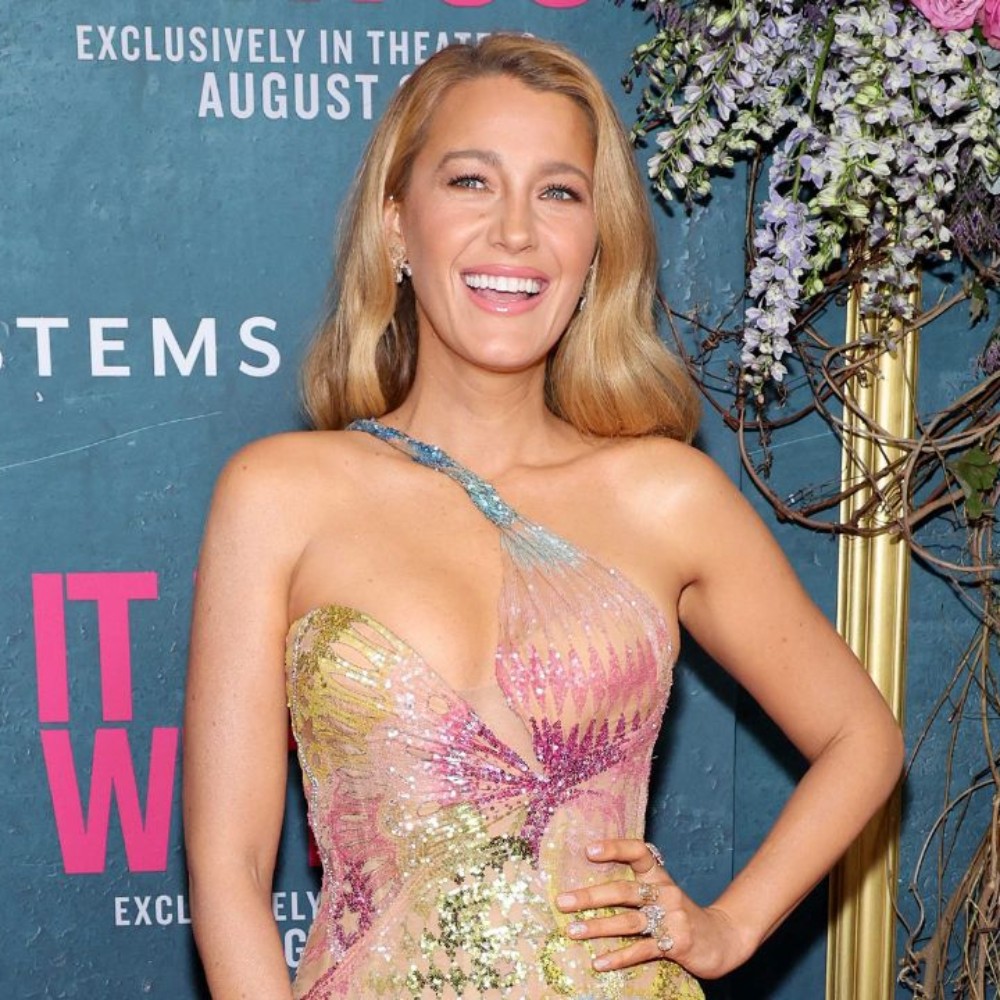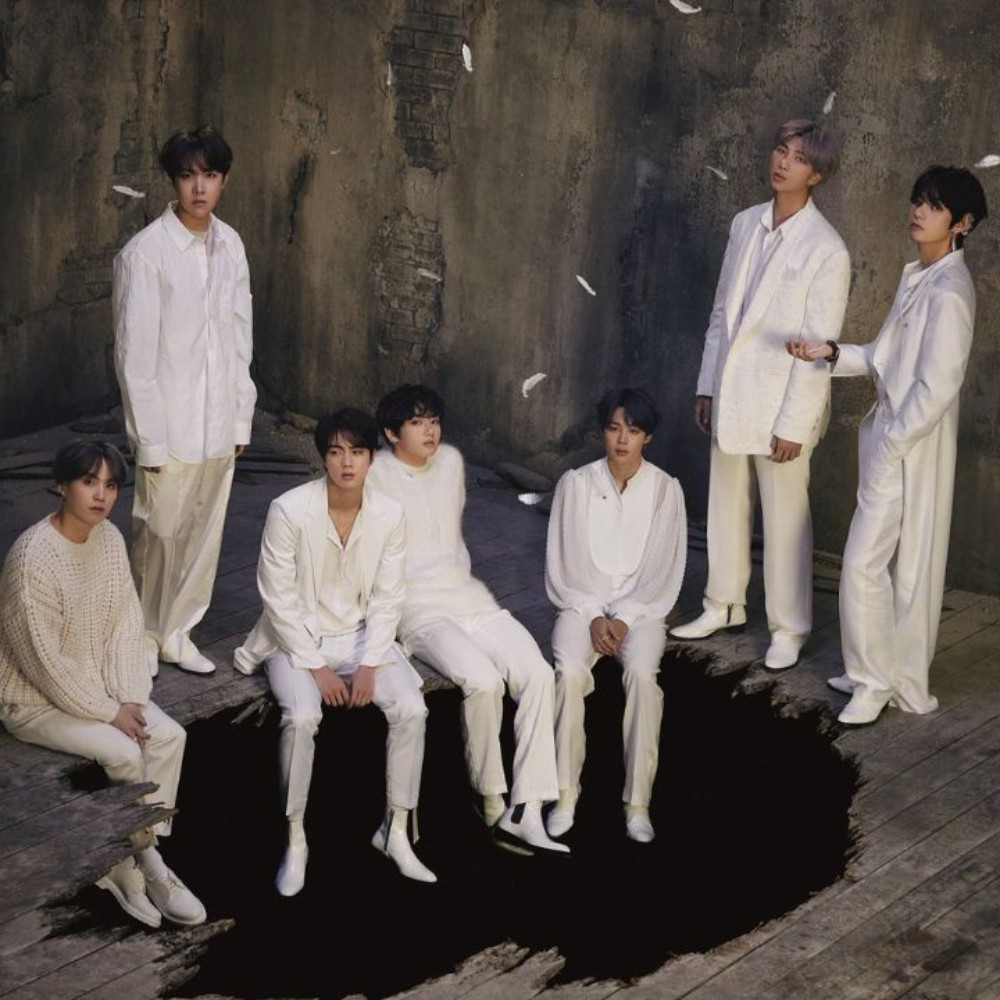Amy Winehouse 41st Birth Anniversary: Remembering Music Icon's 10 Greatest Songs
Celebrate Amy Winehouse's 41st birth anniversary with a look back at her 10 greatest songs, from Back to Black to Valerie honoring her timeless legacy and unforgettable music.

Amy Winehouse, a once-in-a-generation talent, left an indelible mark on the music industry with her raw voice and emotional vulnerability. Known for her soulful voice and deeply personal lyrics, Amy delivered some of the most iconic songs of the 21st century. From chart-topping hits like Back to Black to fan favorites such as Valerie, she captivated audiences with her unique blend of jazz, soul, and R&B.
Her music wasn't just about catchy melodies; it carried the weight of her experiences, emotions, and struggles, making her artistry timeless. This list pays tribute to Amy Winehouse’s 10 greatest songs, offering a glimpse into the depth and talent that continues to influence artists today. Whether you're a longtime fan or just discovering her work, her songs remain a powerful reminder of her genius.

1. Back to Black
Released as the title track of Winehouse’s 2006 album, Back to Black is a song that epitomizes her ability to turn personal pain into a universal anthem. The song narrates her tumultuous relationship with then-boyfriend Blake Fielder-Civil, who left her for an ex-girlfriend. The title symbolizes Winehouse’s emotional descent into a dark place, a metaphorical black after their breakup.
Produced by Mark Ronson, Back to Black fuses 1960s girl-group melodies with a modern edge. Its lush orchestration, filled with brooding strings and echoing drums, complements Winehouse’s deeply melancholic lyrics. Her vocals, raw and filled with despair, reflect the fragility and pain of lost love. The song became a global hit and a defining moment of her career, solidifying her as a unique voice in the music industry.
The accompanying music video, directed by Phil Griffin, further cemented the song’s moody, retro aesthetic. It shows Amy mourning a relationship, attending a funeral for her heart, reflecting the death of her romantic hopes. This imagery, coupled with her evocative performance, has made Back to Black one of her most enduring tracks, capturing the raw essence of Amy’s emotional world.
2. Rehab
Rehab is arguably Amy Winehouse's signature song, a rebellious anthem that narrates her refusal to seek help for her addictions. Released in 2006, the song is based on a real-life intervention from her management team, who tried to convince her to go to rehab. Her refusal, encapsulated in the line, They tried to make me go to rehab, I said no, no, no, became iconic.
Musically, Rehab borrows heavily from Motown and soul influences, with punchy brass, upbeat drums, and a catchy chorus. Yet beneath the lively instrumentation lies a deeper commentary on Amy’s struggles with fame, addiction, and mental health. The juxtaposition of its energetic melody and tragic subject matter made Rehab both an infectious hit and a poignant cry for help.
The song’s success was meteoric. It won multiple Grammy Awards, including Record of the Year, Song of the Year, and Best Female Pop Vocal Performance. Rehab became a symbol of Winehouse’s public battle with addiction, but it also highlighted her unique ability to create music that was both deeply personal and universally relatable.
3. Valerie
Valerie was originally written by the British band The Zutons in 2006, but it was Amy Winehouse’s version, produced by Mark Ronson, that turned the song into a soulful classic. Their collaboration on the track was part of Ronson’s album Version (2007), and it remains one of the most beloved covers of the 2000s.
Amy’s rendition of Valerie took the rock elements of the original and infused them with a jazzy, retro vibe, making the song her own. Her powerful yet playful vocal delivery added emotional depth to the lyrics, transforming it into a hit. The track’s lively brass section and uptempo beat perfectly complemented Amy’s charismatic style, showcasing her versatility as an artist.
Valerie became a staple of Winehouse’s live performances and reached the top 10 in the UK charts. It’s often celebrated as one of the most joyful tracks in Amy’s repertoire, contrasting with the darker themes in much of her work. Even today, Valerie remains a fan favorite, a testament to Amy’s ability to take an existing song and elevate it with her unique voice.
4. Tears Dry on Their Own
Tears Dry on Their Own is one of Winehouse’s most uplifting songs, despite its melancholic subject matter. The track, which samples Marvin Gaye and Tammi In the song, Amy reflects on the end of her relationship with Blake Fielder-Civil, but instead of wallowing in sorrow, she resolves to move on. The chorus, with its soaring melody and affirmations of independence, is both empowering and heartbreaking. Musically, the upbeat tempo and Motown influences give the track a sense of hope, despite the sadness in the lyrics.
Tears Dry on Their Own became one of Amy’s most popular tracks, not only because of its relatable message but also due to its infectious rhythm. It’s a song that perfectly captures the complexity of Winehouse’s music, where joy and sorrow exist side by side, creating an emotional depth that resonates with listeners.
5. You Know I’m No Good
You Know I’m No Good is another standout from the Back to Black album, where Amy openly explores her flaws and mistakes in relationships. The song blends jazz and hip-hop influences with a sultry, laid-back groove that contrasts with the brutal honesty of the lyrics.
The narrative in the song is confessional, with Amy reflecting on infidelity and self-sabotage. Her storytelling is sharp, filled with vivid details of broken relationships and regret. The song’s honesty and self-awareness give it a raw emotional power that is quintessentially Winehouse.
Critics praised You Know I’m No Good for its complex portrayal of love and guilt, with many noting how Amy’s voice brought the lyrics to life. It’s a song that reveals the vulnerability beneath her tough exterior, making it one of her most compelling tracks.
6. Love Is a Losing Game
Love Is a Losing Game is one of Amy Winehouse’s most poignant ballads, offering a haunting reflection on the futility of love. Released as the fifth single from Back to Black, the song’s minimalist production allows Amy’s voice to take center stage, delivering a heartbreaking performance.
The lyrics of this song are simple yet devastating, as Amy reflects on the end of a relationship with a sense of resignation and sorrow.
Her voice, tender and raw, conveys a depth of emotion that few artists can match. The song’s slow tempo and sparse instrumentation further amplify its emotional weight.
Love Is a Losing Game was widely praised by critics and won the Ivor Novello Award for Best Song Musically and Lyrically in 2008. It remains one of Winehouse’s most beloved songs, a testament to her ability to express deep emotions with stunning simplicity.
7. In My Bed
In My Bed showcases Amy Winehouse’s ability to blend jazz, R&B, and hip-hop influences into a distinctive sound. Taken from her debut album Frank, the song features a funky beat and sultry vocals, with lyrics that explore themes of love, lust, and independence.
The song’s production, driven by a heavy bassline and sharp drums, gives it a confident and assertive energy. Lyrically, Amy takes control of her narrative, singing about a relationship where emotional connection is secondary to physical attraction. It’s a bold track that highlights her fearless approach to songwriting.
8. Take the Box
Take the Box is a deeply personal song from Amy’s debut album Frank, detailing the end of a relationship with vivid imagery and emotional honesty. The song’s title refers to the act of packing away memories of a failed romance, symbolizing the finality of the breakup.
Amy’s voice, delicate yet powerful, carries the emotional weight of the song, as she sings about heartbreak with a sense of quiet resignation. The minimal production, featuring soft guitar and piano, allows her vocals to shine, making Take the Box one of the most intimate tracks in her catalog.
The song received critical acclaim for its lyrical depth and emotional vulnerability, marking Amy as a unique talent in the early stages of her career.
9. Stronger Than Me
Stronger Than Me was Amy Winehouse’s debut single from her first album Frank, which was released in 2003, a song that introduced her as a unique voice in the jazz-soul revival scene. The track is a cheeky yet cutting critique of a relationship where Winehouse finds herself frustrated with a passive, emotionally dependent partner. Her complaint is simple: she expects her partner to be stronger than me, but instead, he leans on her too much, emotionally and otherwise.
Musically, the song stands out for its blend of modern R&B and retro jazz influences, carried by a groovy bassline, punchy horns, and Amy’s sultry, unapologetic vocals. The song's production feels intimate yet bold, much like the artist herself, blending lush jazz melodies with modern beats. What makes Stronger Than Me especially notable is Winehouse's ability to be both vulnerable and assertive, she expresses disappointment but does so with a knowing, almost ironic tone.
This track won Winehouse the Ivor Novello Award for Best Contemporary Song in 2004, further cementing her as a promising new talent. It set the stage for her later, more deeply emotional work but also showcased her wit and self-awareness early on.
10. Me & Mr. Jones
Me & Mr. Jones, from Back to Black, is a deeply personal track where Winehouse lets her frustrations spill out over a failed relationship. The song is believed to be about her relationship with Nas, with Mr. Jones being a reference to Nas' real name, Nasir Jones. However, Amy’s ability to blend her personal narrative with broader themes of disappointment, betrayal, and unfulfilled expectations gives the song a universal resonance.
The song opens with a jazzy, retro-inspired beat that recalls 1960s soul and doo-wop, with playful horns and a tight rhythm section. Musically, it's upbeat and fun, but lyrically, Amy is sharp and unforgiving, venting about her partner’s perceived failures. The juxtaposition between the catchy melody and biting lyrics is quintessential Amy Winehouse, showcasing her skill at mixing emotions in ways that feel deeply personal yet easy to relate to.
ALSO READ: Lil Wayne Reacts To The Super Bowl Halftime Show Snub: 'It Hurt A Lot'





 JOIN OUR WHATSAPP CHANNEL
JOIN OUR WHATSAPP CHANNEL






































